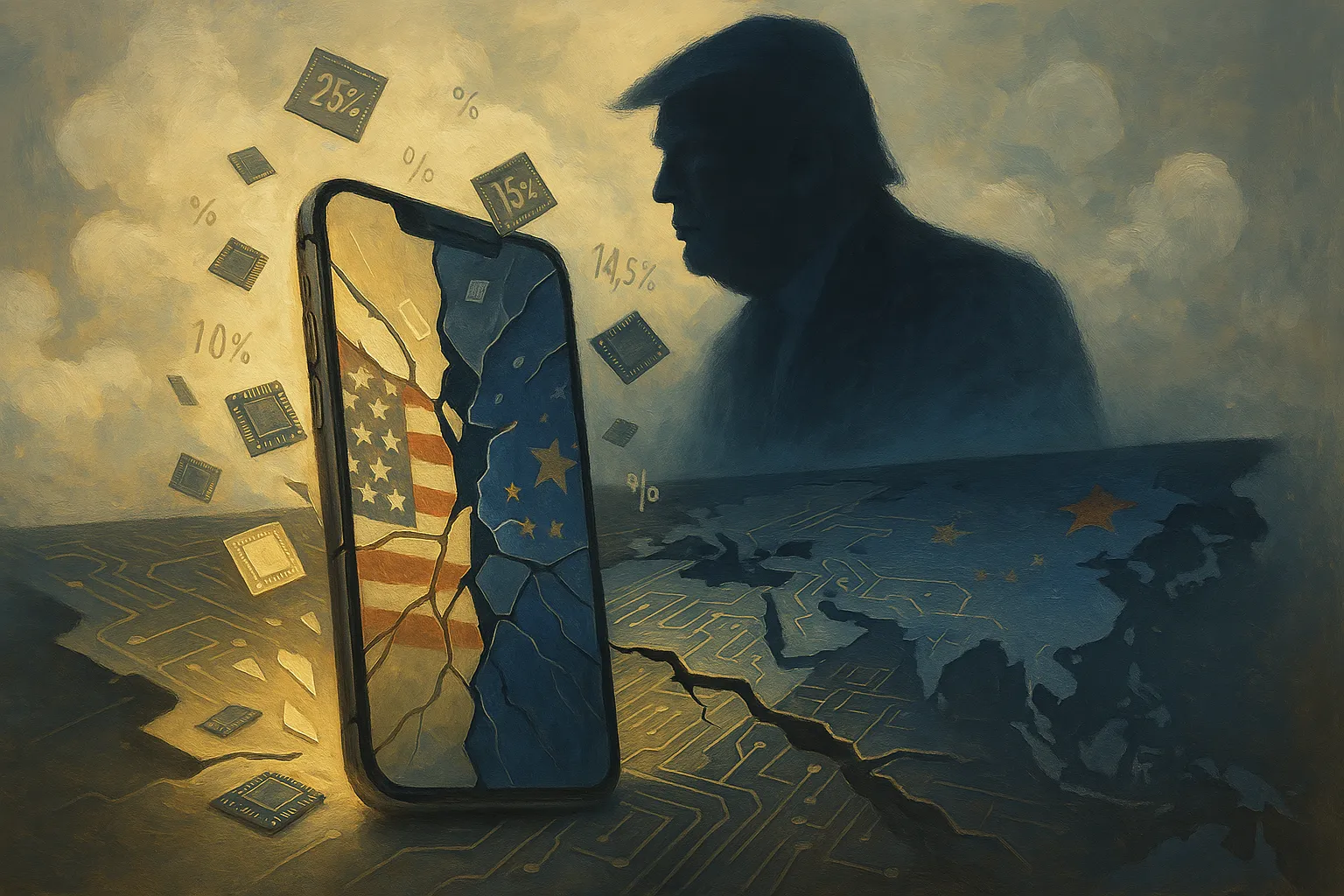Trump shattered a brief moment of relief for tech companies on Sunday. Just days after exempting phones and computers from steep tariffs, he announced these products would face new semiconductor-focused duties. "NOBODY is getting off the hook," Trump posted on Truth Social, targeting China's "unfair Trade Balances."
Commerce Secretary Howard Lutnick clarified the administration's stance. While consumer electronics dodge the "reciprocal" tariffs for now, they'll face scrutiny under upcoming semiconductor tariffs "in a month or two." The goal? Pushing electronics manufacturing back to American soil.
China didn't wait to counter-punch. Beijing suspended exports of six crucial rare earth metals and specialized magnets - components essential for everything from iPhones to electric vehicles. China controls 90% of global production, giving it enormous leverage.
Markets Reel as Trade War Intensifies
The timing stings. Apple, which produces 80% of its iPhones in China, now scrambles to expand Indian manufacturing. But moving production isn't simple - these devices need those Chinese rare earth magnets to function.
Supply Chain Chaos Looms for Tech Giants
Wall Street already shows signs of strain. Trump's policy zigzags triggered a sell-off in the $29 trillion US Treasuries market. Ray Dalio of Bridgewater Associates warns we're "very close to a recession" and fears worse if the situation deteriorates.
The rare earth export freeze hits particularly hard. Chinese ports block shipments worldwide, demanding extensive testing before allowing any magnets to leave - even to friendly nations. Many American companies keep minimal inventories of these expensive materials, unlike Japanese firms that maintain year-long stockpiles after learning from China's 2010 export embargo.
China Flexes Resource Dominance
Tesla and other automakers face a ticking clock. Without Chinese magnets, electric vehicle production could grind to a halt. The same goes for drones, robots, and military hardware - all dependent on China's rare earth monopoly.
Trump's team claims companies like Apple can simply move production to America. Industry experts call this unrealistic, citing deep supply chain ties to Asia. Even MP Materials, owner of America's sole rare earth mine, won't start magnet production until year's end.
Beijing frames this as retaliation for Trump's aggressive tariffs - now at 145% on Chinese goods. The rare earth export freeze demonstrates China's willingness to use its resource dominance as leverage, regardless of global market disruption.
Why this matters:
- The tech industry faces a perfect storm: US tariffs pushing manufacturing home while China cuts off critical materials needed for that very manufacturing.
- For all the talk of supply chain independence, China just proved it holds a trump card - control of materials essential to modern technology. No rare earth metals means no smartphones, no electric cars, and no advanced military equipment.
Read on, my dear:
Financial Times: US tech tariff exemption will be temporary, says Trump








